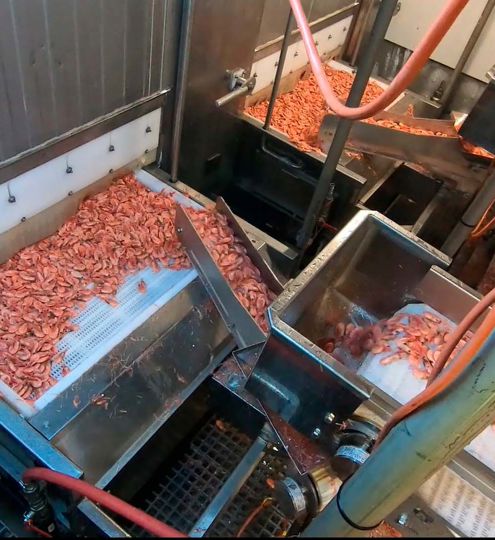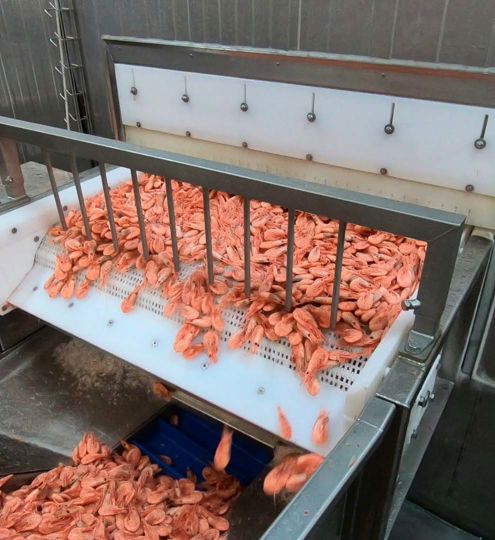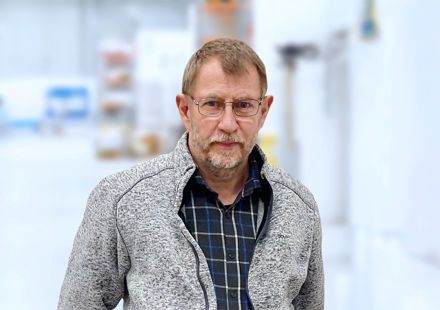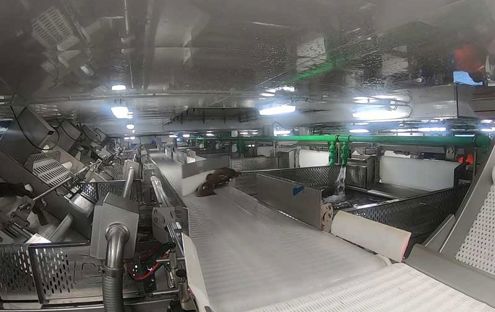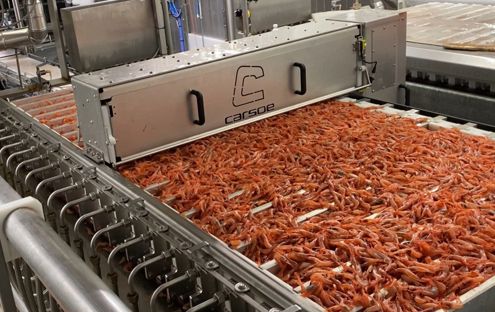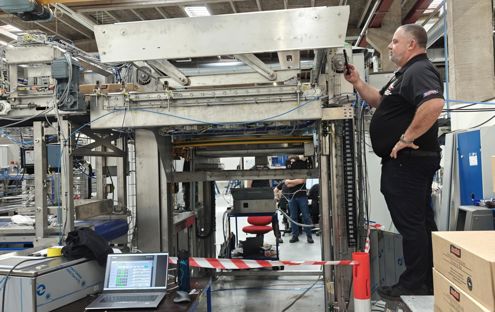
New QFC trawler equipped with Carsoe dual-species factory
When the Qikiqtaaluk Fisheries Corporation (QFC) in October announced the commissioning of their largest Factory Fishing trawler to date, the Saputi II, it was in a strong partnership with Carsoe that was chosen to provide an advanced processing facility on board.
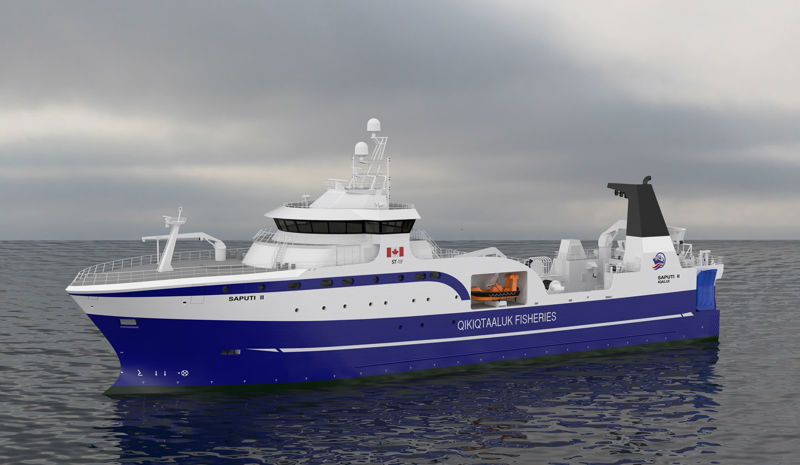
Unparalleled Product Quality and a Safe Working Environment Onboard
The Carsoe processing factory aboard Saputi II guarantees unparalleled product quality through cutting-edge onboard processing and freezing techniques, preserving the freshness of the product. The factory is equipped with automated bycatch separators, a shrimp grader, and a batch cooking line. Additionally, it features a complete halibut production line, granting the vessel the flexibility to seamlessly switch between different production types.
The processed product is rapidly frozen using one of the three IQF Tunnel Freezers or the two Automatic Horizontal Freezers. The freezing process is entirely automated, ensuring efficient and continuous processing. With an automatic, continuous freezing process, manual handling is eliminated, resulting in increased production rates. The infeed and outfeed of the freezer are automated, maximizing capacity and simplifying maintenance procedures.
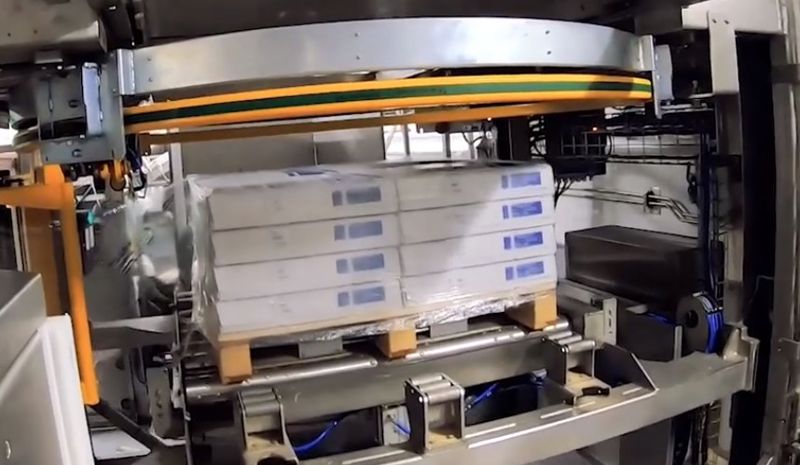
About QFC and the new vessel Saputi II
Qikiqtaaluk Fisheries Corporation (QFC) is a wholly-owned subsidiary of QC, an Inuit birthright development corporation created by the Qikiqtani Inuit Association. With a history spanning 40 years in the Qikiqtani Region, QFC's mission is to provide employment and financial opportunities for Inuit in the region. QFC owns and operates the multi-species factory freezer vessels Saputi and soon Saputi II, both of which operate in the Qikiqtani Region, harvesting offshore shrimp and turbot/halibut.
Saputi II will be constructed in the Freire Shipyard (Construcciones Navales P. Freire), a family-owned company established in 1895 by Paulino Freire in Vigo, Spain.
Contact us
Contact us to learn more about onboard seafood processing.
-

Søren Hansen
Area Sales Manager

